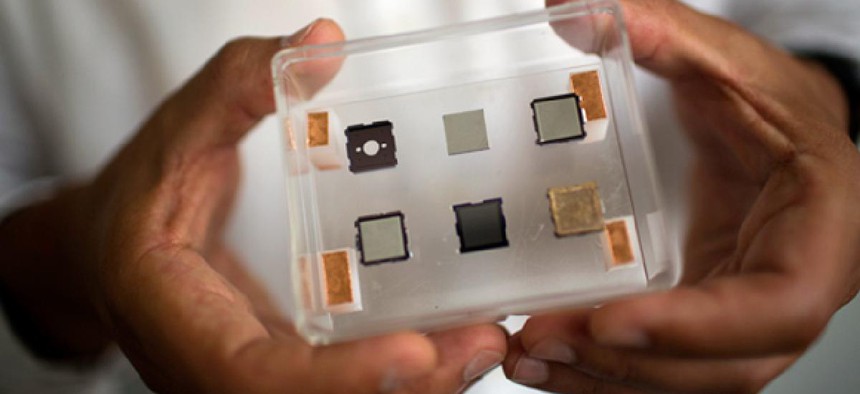MIT scientists create penny-sized rocket thruster

The parts comprising the thruster M. Scott Brauer/MIT
Technology could propel mini-satellites, reduce space clutter.
Scientists at the Massachusetts Institute of Technology have created a penny-sized rocket thruster to power miniaturized space satellites, the university announced.
Small satellites collecting data for space research take much longer to degrade at higher orbits, potentially causing space clutter. While traditional propulsion systems have proved too bulky to move nanosatellites around in space, MIT’s invention could fill the vacuum. The mini-thruster could propel the satellites into lower orbits, where they will eventually burn up, rather than remain in higher orbit and risk colliding with other satellites deployed in sensitive missions.
The little thruster resembles a microchip. It is covered with 500 microscopic tips that can be stimulated to emit beams of ions that propel a shoebox-sized satellite forward, according to the statement. Paulo Lozano, MIT associate professor of aeronautics and astronautics, led the design effort.
The researchers presented their thruster array at the American Institute of Aeronautics and Astronautics’ recent Joint Propulsion Conference, held late July through August 1.





